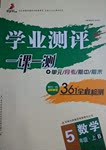题目内容
多项选择式完形填空题
We may look at the world around us, but somehow we manage not to see it until whatever we've become used to suddenly disappears. 1 , for example, the neatly-dressed woman I 2 to see-or look at-on my way to work each morning.
For three years, no matter 3 the weather was like, she was always waiting at the bus stop around 8:00 am. On 4 days, she wore heavy clothes and a pair of woolen gloves. Summertime 5 out neat, belted cotton dresses and a hat pulled low over her sunglasses. 6 , she was an ordinary working woman. Of course, I 7 all this only after she was seen no more. It was then that I realized how 8 I expected to see her each morning. You might say I 9 her.
“Did she have an accident? Something 10 ?” I thought to myself about her 11 . Now that she was gone, I felt I had 12 her. I began to realize that part of our 13 life probably includes such chance meetings with familiar 14 the milkman you see at dawn, the woman who 15 walks her dog along the street every morning, the twin brothers you see at the library. Such people are 16 markers in our lives. They add weight to our 17 of place and belonging.
Think about it. 18 , while walking to work, we mark where we are by 19 a certain building, why should we not mark where we are when we pass a familiar, though 20 , person?
1.
[ ]
2.
[ ]
3.
[ ]
4.
[ ]
5.
[ ]
6.
[ ]
7.
[ ]
8.
[ ]
9.
[ ]
10.
[ ]
11.
[ ]
12.
[ ]
13.
[ ]
14.
[ ]
15.
[ ]
16.
[ ]
17.
[ ]
18.
[ ]
19.
[ ]
20.
[ ]
解析:
|
1.take…for example表示“以……为例”是固定搭配,本题中的sb./sth.后移,因为其后又有一宾语从句太长后置了。 2.used to do sth.意为“过去常常干某事”。短文首句中somehow we manage not to see it until whatever we've become used to suddenly disappears可知,作者举例是指过去常常看见的那位妇女,下文也提到此事。 3. what the weather was like是常用交际用语,表示“天气如何”,疑问代词what作介词like的宾语,而不能用how。 4.以下文的heavy clothes,wooden gloves可知天气冷,故选snowy days. 5.bring out拿出,带出,可有“穿戴”之意;take out拿出;carry out完成,执行;turn out证明是,生产,出版,皆与文意不符。此处指夏天她穿着干净、扎腰带的棉衣裙,戴着帽子遮着太阳镜。 6.由上下文对这个妇女的描述可知,她是一个普通妇女,clearly显而易见地。 7.本题与开头第一句遥相呼应。“但是莫明其妙地我们总是在我们已经习惯了的东西突然消失之后才看清了它”。本句又提到了这一点,“我们只是在再也看不到她之后才记起了这一些”。 8.how much多少;how long多长时间;how often多久一次;how soon多久才能。句中much修饰动词expected。这里宾语从句的意思是“我多么希望见到她”。 9.既然上文说“我希望见到她”,本句则应是“我想念她”。 10.此处直接引语的意思是“她是否发生了事故?或者是更可怕的事发生了”?因为上文提到那位妇女不见了。 11.因为上文提到那位妇女不见了,所以选择disappearance,指作者心想她消失的原因。 12.回到本文开头的观点:某些东西直到消失了才看得清。本句则是“既然她不见了,我才感到我认识了她”。 13.由上文记叙的事开始转入议论。上文记叙的是日常生活中的事,故本题应选daily life。 14.上文说的这个妇女是我经常见到的陌生人。 15.前文提到familiar,因此得知应是经常见面的。 16.由上文所说和下文“加重了我们的……”可知,“这样的人是一些重要的标识”。 17.与上句相互联系,本句意为“这些人加重了我们对地点和财物的感知”。 18.逻辑关系是假设关系。本题与54,55构成了一个非常复杂的主从复合句,想想以上的事件,“如果我们能通过我们经过了某个建筑来标记我们的位置,为什么我们就不能通过我们经过了某个我们所熟悉的尽管叫不出名字的人来标记我们的位置呢? 19.下文中的when时间状语从句为本题提供了答案。 20.与本文讲述的故事密切相关,是一个常见但却叫不上名字的人。 |

 学业测评一课一测系列答案
学业测评一课一测系列答案